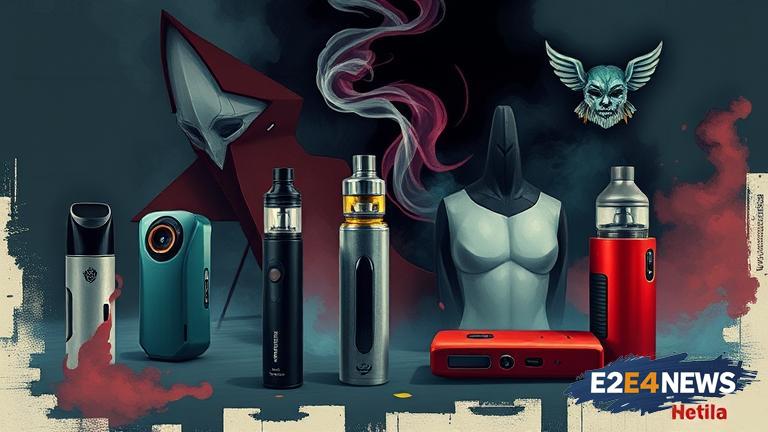Organised crime groups have been identified as the primary perpetrators behind the surge in drug-laced vapes in Asia, including Singapore. These groups have been exploiting the growing demand for e-cigarettes and vaping products to peddle their illicit goods. The drug-laced vapes, often laced with synthetic substances like cannabis and methamphetamine, have been linked to a string of hospitalisations and deaths across the region. In Singapore, authorities have reported a significant increase in the number of vape-related seizures and arrests, with many of the confiscated products found to contain illegal substances. The ease of accessibility and discreet nature of vapes have made them an attractive target for organised crime groups, who are using social media and online platforms to market and distribute their products. The Singapore government has responded by implementing stricter regulations and enforcement measures, including the ban of all vape products in 2019. However, the black market for vapes continues to thrive, with many users turning to online forums and social media groups to purchase and share information about illicit vape products. The use of drug-laced vapes has been linked to a range of serious health problems, including respiratory failure, seizures, and psychosis. In addition to the health risks, the proliferation of drug-laced vapes has also raised concerns about the potential for addiction and the impact on mental health. The Singapore authorities have warned that the use of drug-laced vapes can lead to long-term cognitive and psychological damage, particularly among young people. To combat the issue, the government has launched a series of public education campaigns and outreach programmes, aimed at raising awareness about the dangers of drug-laced vapes and the importance of seeking help. The police have also increased their efforts to disrupt and dismantle the organised crime groups behind the trade, with a number of high-profile arrests and convictions in recent months. Despite these efforts, the problem of drug-laced vapes remains a pressing concern, with many experts warning that the issue is likely to worsen unless more is done to address the root causes of the problem. The international community has also been urged to take action, with calls for greater cooperation and coordination to disrupt the global supply chains and networks used by organised crime groups to peddle their illicit goods. As the situation continues to evolve, it is clear that a comprehensive and multi-faceted approach will be needed to tackle the complex issues surrounding drug-laced vapes in Asia, including Singapore. This will require a sustained effort from governments, law enforcement agencies, health professionals, and community groups to raise awareness, disrupt the black market, and provide support to those affected by the issue.
